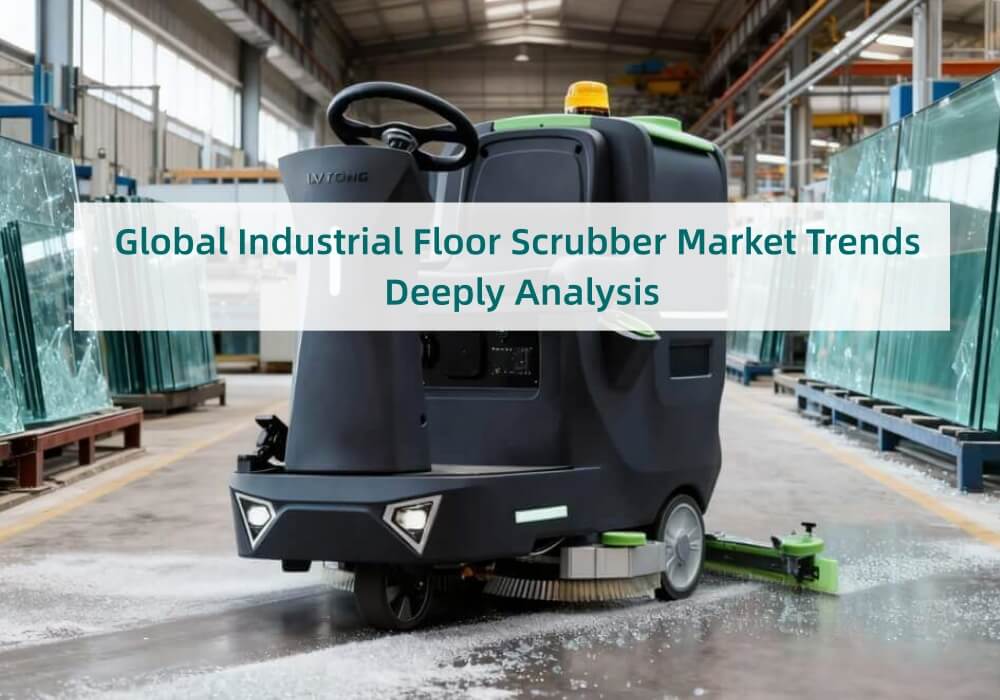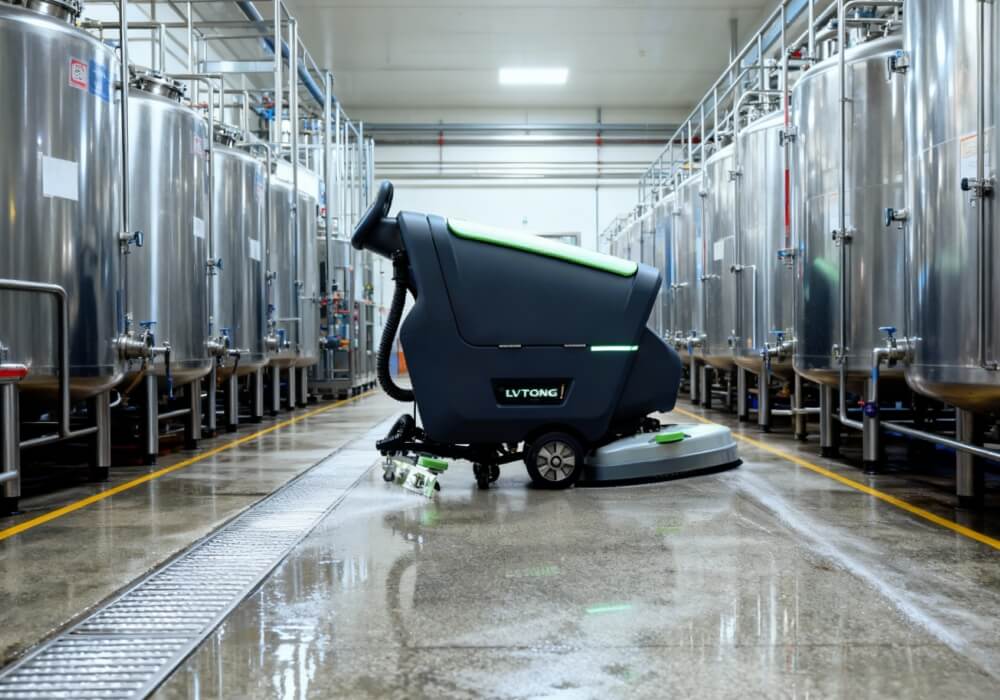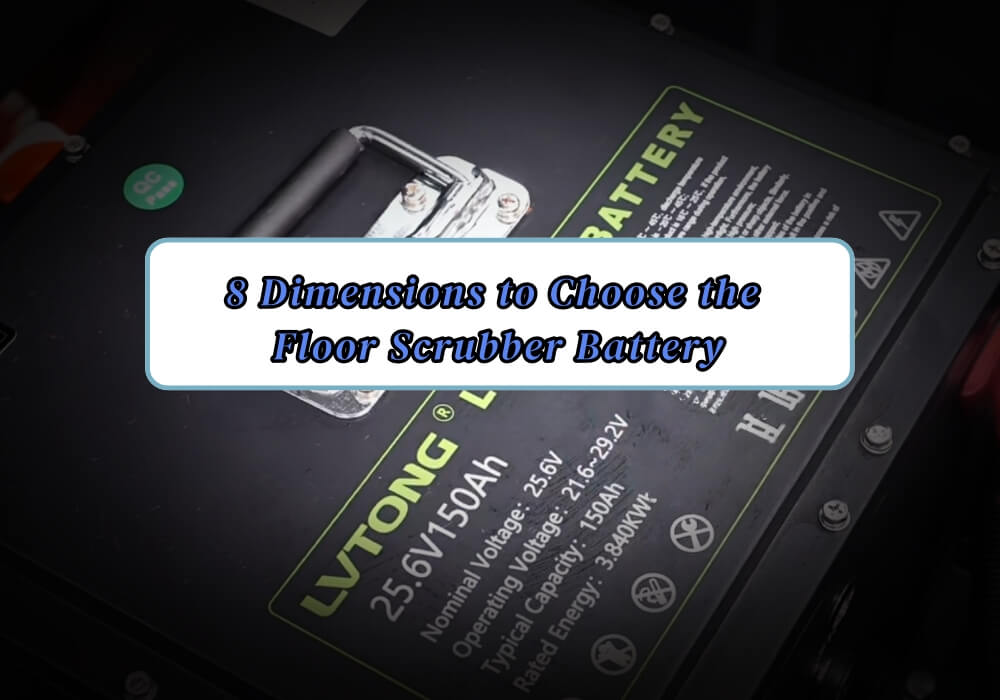
Introduction
In modern industrial cleaning industry, the choice of battery system directly impacts the efficiency, service life, and overall operating costs of industrial floor scrubbers. Faced with a wide variety of battery brands on the market, choosing the most suitable floor scrubber battery has become a crucial issue for equipment purchasers and operations managers.
floor scrubber battery market
The floor scrubber battery market is growing steadily as more commercial and industrial facilities adopt automated cleaning equipment. Demand for efficient, durable, and eco-friendly batteries is increasing, especially with the shift from lead-acid to lithium-ion technology. Lithium-ion batteries offer longer runtime, faster charging, and lower maintenance costs, making them the preferred choice for modern floor scrubbers. With rising hygiene standards and sustainability goals, the market is expected to continue expanding, driven by innovation in battery performance and smart energy management systems.
Types of Floor Scrubber Batteries
Lead-Acid Batteries (Flooded, AGM, and Gel)
As a traditional technology, lead-acid batteries have low cost, mature technology and a complete recycling system advantages.
Flooded Lead-Acid Battery: With the lowest price, but requires regular addition of distilled water for maintenance, and produces hydrogen and oxygen gases during charging, requiring a well-ventilated environment.
AGM Sealed Lead-Acid Battery: Using glass fiber diaphragm to absorb electrolyte, doesn't require water addition for maintenance, can be installed horizontally, and has better leakage prevention performance.
Gel Lead-Acid Battery: The electrolyte is gelled to further enhance vibration resistance and deep cycle performance, but the cost is relatively high.
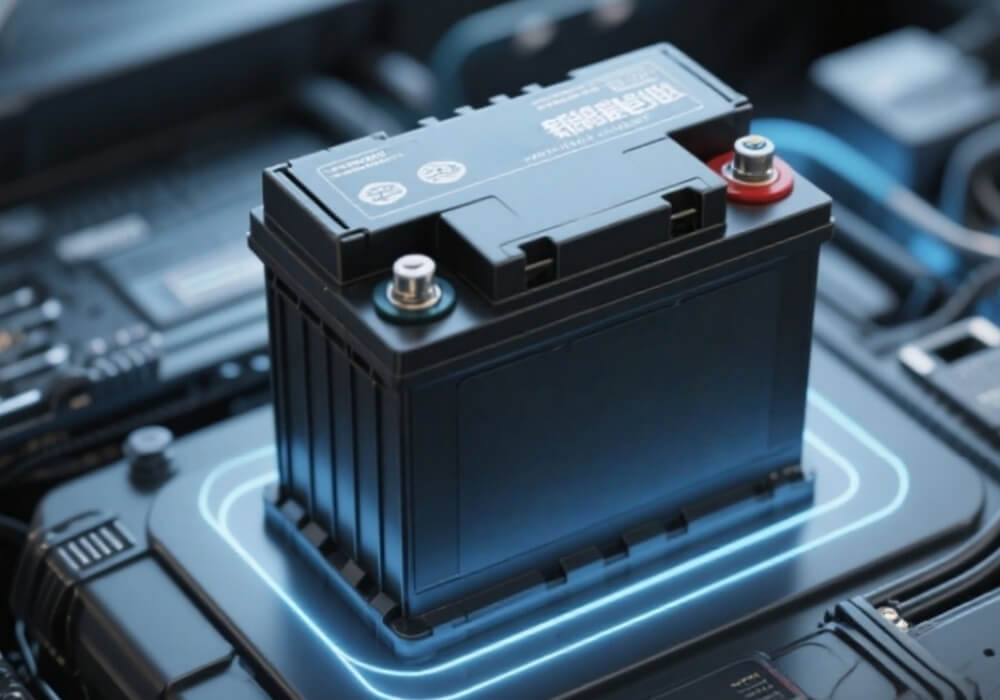
Lithium Batteries (Lithium iron phosphate LiFePO4 and Ternary lithium batteries)
As an emerging technology, lithium batteries have high energy density, long cycle life and fast charging speed advantages.
Lithium Iron Phosphate Batteries: With excellent thermal stability and safety featues, they are the preferred choice for industrial equipment. Their cycle life can reach 2,000-5,000 times, far exceeding the 300-500 times of lead-acid batteries. Taking LVTONG S5 Industrial Floor Scruuber as an example, it is using 24V 100AH Lithium Battery.
Ternary Lithium Battery: It has higher energy density, higher requirements for the battery management system (BMS), and requires strict control of the charging and discharging temperature range.
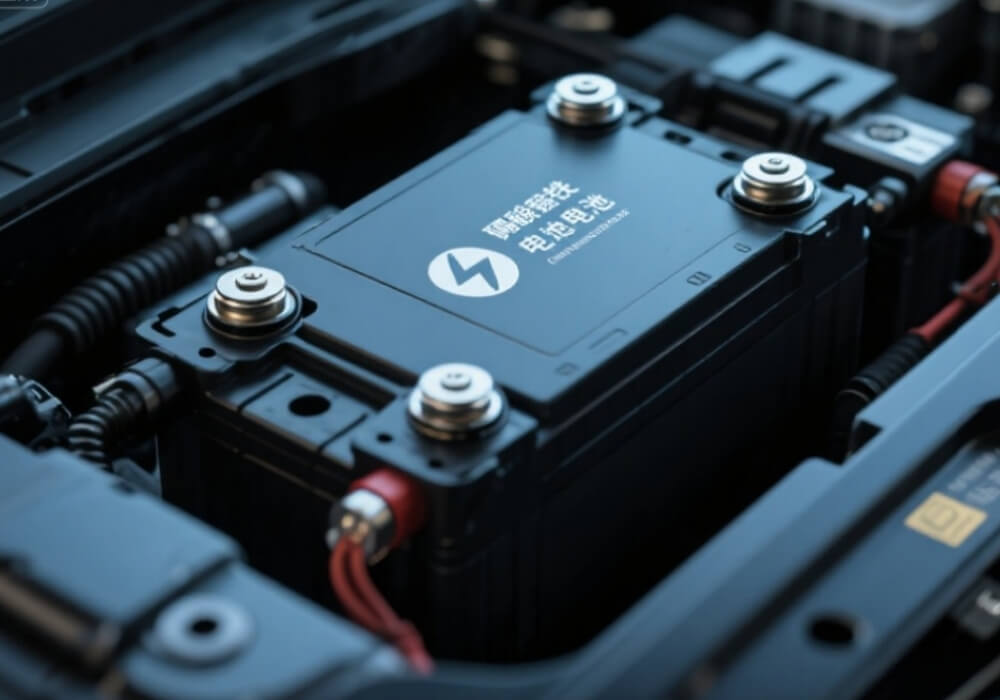
Nickel-Cadmium Batteries
This type of battery offers good performance and a long cycle life. However, its memory efficiency decreases over time and due to environmental issues. Therefore, it has not been widely used.
Battery Performance Dimension
Battery performance parameters directly reflect the floor scrubber working efficiency. It is mainly including the following indicators.
The battery capacity determines the battery life of the floor scrubber. It is usually expressed in ampere hours (Ah) such as 24V100AH, 24V120AH, etc. In general, the larger the capacity, the longer the floor scrubber can continue to operate after a single charge.
In addition, for industrial floor scrubbers, the required battery capacity varies for different types of scrubbers. Walk behind floor scrubber power is relatively small, and it can generally meet daily needs with batteries of specifications such as 24V 100AH and 24V 120AH. On the other hand, the power of ride on floor scrubber is relatively high, and it needs to be matched with large-sized batteries such as 24V200AH and 24V240AH to ensure the battery life of the cleaning machine.
The voltage needs to match the rated voltage of the floor scrubber motor. Common voltages include 12V, 24V, 36V and 48V. In addition, series batteries should be selected from the same brand, batch, and consistent performance to avoid overall performance degradation caused by mismatched performance.
Charging speed is an important factor affecting the efficiency of industrial floor scrubbers. The charging speed of lithium batteries is fast, with taking 3-5 hours to fully charge. On the contrary, lead-acid batteries have a slower charging speed, with taking 7-8 hours to fully charge.
Cycle life refers to the number of charge and discharge cycles a battery undergoes under certain conditions. The longer the cycle life, the longer the battery's lifespan, and the lower the long-term usage cost. The cycle life of lead-acid batteries is generally 300-500 times, while the cycle life of lithium batteries is 1000-2000 times.
The self discharge rate represents the speed at which the battery automatically loses power when it is idle. The monthly self discharge rate of lead-acid batteries is about 3% -5%, while that of lithium batteries is only 1% -2%.

Energy Density
It refers to the energy stored in a battery per unit volume or weight. The higher the energy density, the more electricity a battery can store under the same volume or weight. For industrial floor scrubbers, lithium batteries energy density is higher than that of lead-acid batteries.
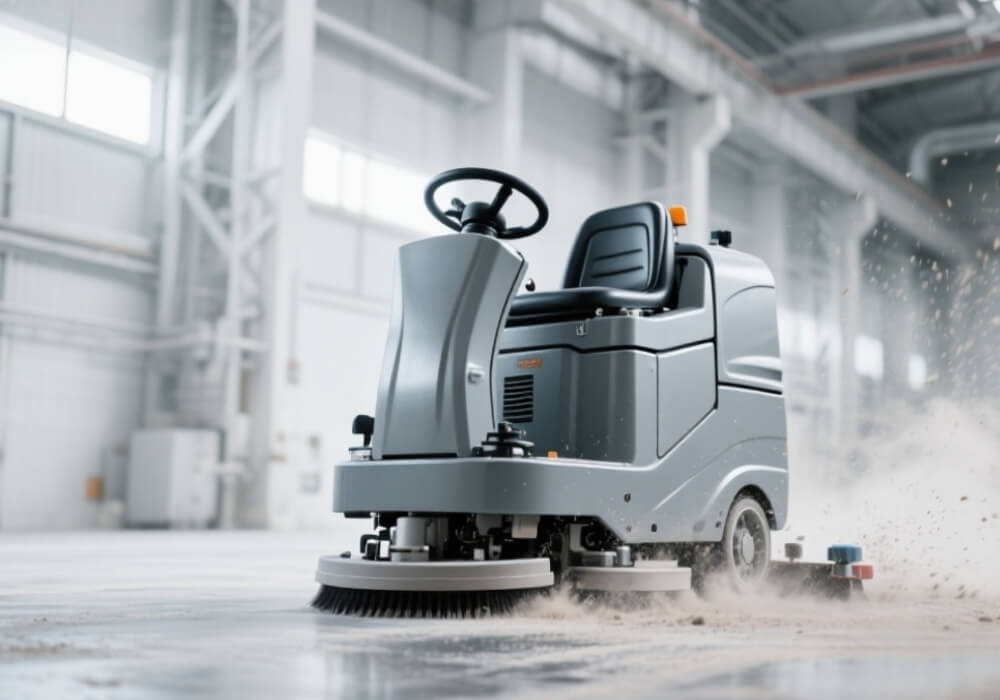
Economic Dimension
The cost of floor scrubber batteries should not only focus on initial procurement costs, but also on energy costs, maintenance costs, replacement costs, and recycling costs.
Lithium Battery | Lead-Acid Battery | |
Procurement Cost | 1400-2100$ | 400-700$ |
Cycle Life | 2000 Times | 500 Times |
Maintenance Cost | Replace 3 Times (5 Years) | Replace Once (5 Years) |
Energy Consumption Cost | Charging efficiency is about 95% | Charging efficiency is about 80% |
Investment Return Analysis: The initial investment cost of lithium batteries is 2-3 times that of lead-acid batteries. However, after 2-3 years, other cost-return ratios will offset the initial low cost advantage of lead-acid batteries. In addition, it will continue to generate economic benefits in the future.
Selection Suggestion: For enterprises with low frequency (Using less than 3 times a week), lead-acid batteries are more suitable; For high-frequency companies, the economic benefits of lithium batteries are more significant.
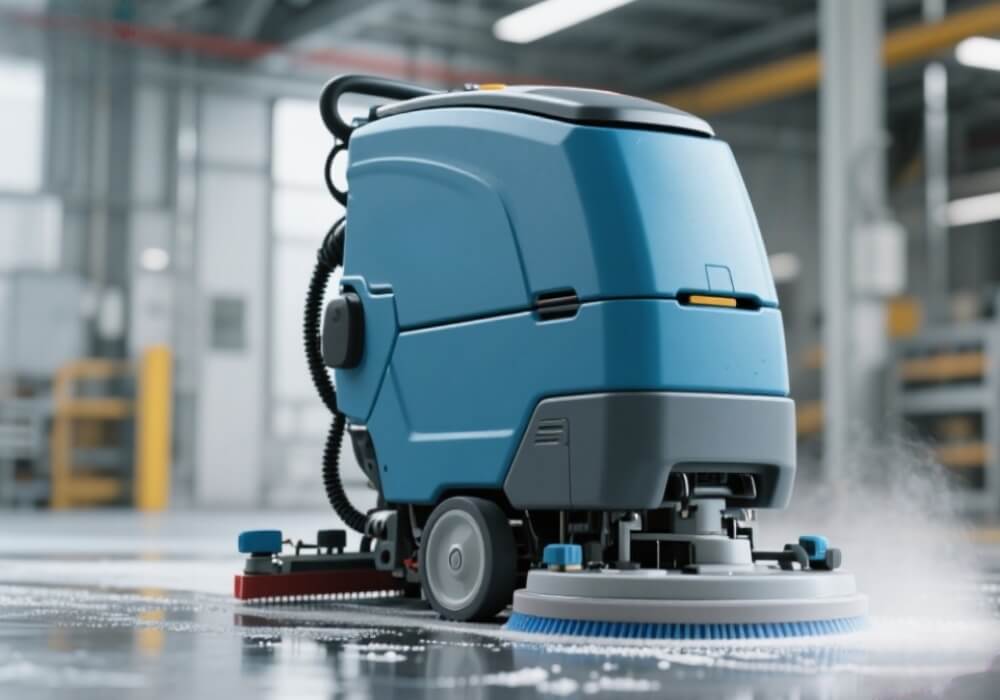
Environmental Dimension
Industrial floor scrubbers often operate under various environmental conditions, and the environmental adaptability of batteries is particularly important.
Lead acid batteries will experience a 20% -30% decrease in battery life and charging efficiency in low-temperature environments. Moreover, in high temperature environments, it will accelerate grid corrosion and water evaporation, shortening the lifespan. Similarly, lithium batteries are also affected by temperature conditions. Under low or high temperature conditions, the battery capacity will decrease. Overall, lithium batteries have better adaptability than lead-acid batteries, with a working temperature range of -20℃ to 60℃.
Lithium batteries don't contain heavy metals such as lead and cadmium, and they have less environmental pollution than lead-acid batteries. However, its recycling system is not as perfect as lead-acid batteries.
Dimension | Lead Acid Battery | Lithium Battery |
Raw Material Extraction | Lead is highly toxic and poses a serious health threat | High water consumption |
Manufacturing | Relatively low energy consumption & carbon emissions | High energy consumption and carbon emissions |
Usage Phase | Low efficiency (70-85%), Heavy | High efficiency (>95%) , High energy density |
Scrap and Recycle | Extremely high recovery rate (>99%) | Low recovery rate |
Durability | Short sustainable use time | Good durability |
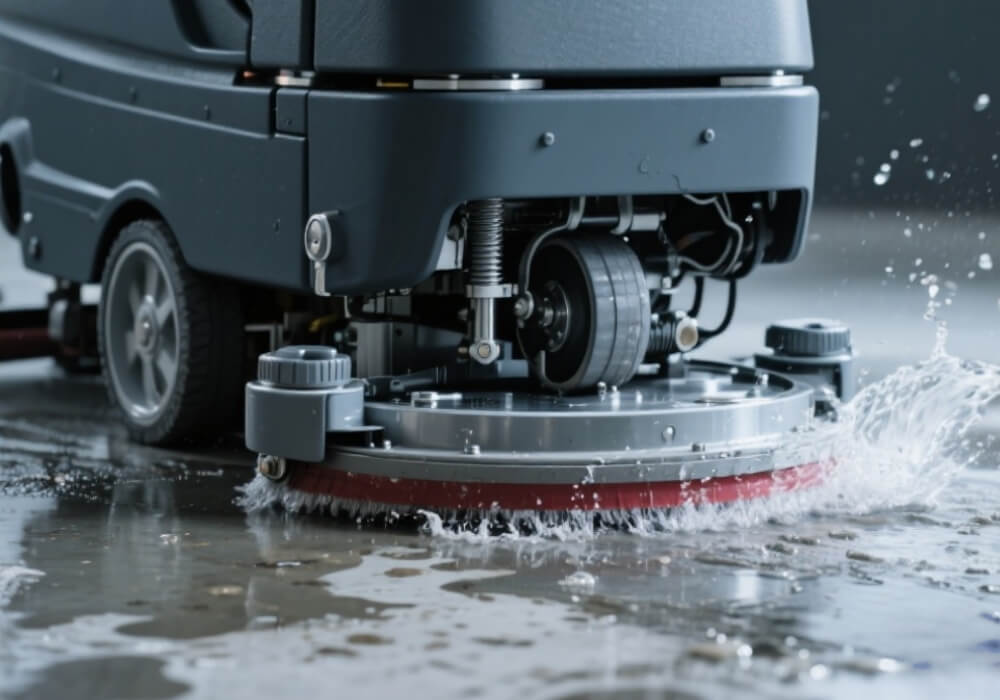
Security Dimension
Battery safety is an important consideration in the operation of industrial floor scrubbers. Different battery types have their own safety risks and prevention and control points.
The main risks are electrolyte leakage, corrosiveness, and explosive gases generated during charging. Therefore, during use, it need to pay attention to several details:
- Ensure the charging area is well ventilated.
- No fireworks allowed.
- Avoid metal contact between the positive and negative terminals, which could cause a short circuit.
- Always open the water filler cap during charging to allow gas to escape.
The main risk is thermal runaway, which can lead to fire and explosion. Although lithium batteries have high safety performance, they still need to have overcharge protection, over-discharge protection, overcurrent protection, and temperature protection.
- The charging area should be set up in a ventilated, dry and away from flammable materials.
- It is strictly forbidden to mix batteries of different models or with different age levels.
- Check the battery appearance regularly to see if there is swelling, leakage, or odor. If any of these symptoms are found, stop using the battery immediately.
- Proper firefighting equipment (Fire extinguishers for electrical fires)
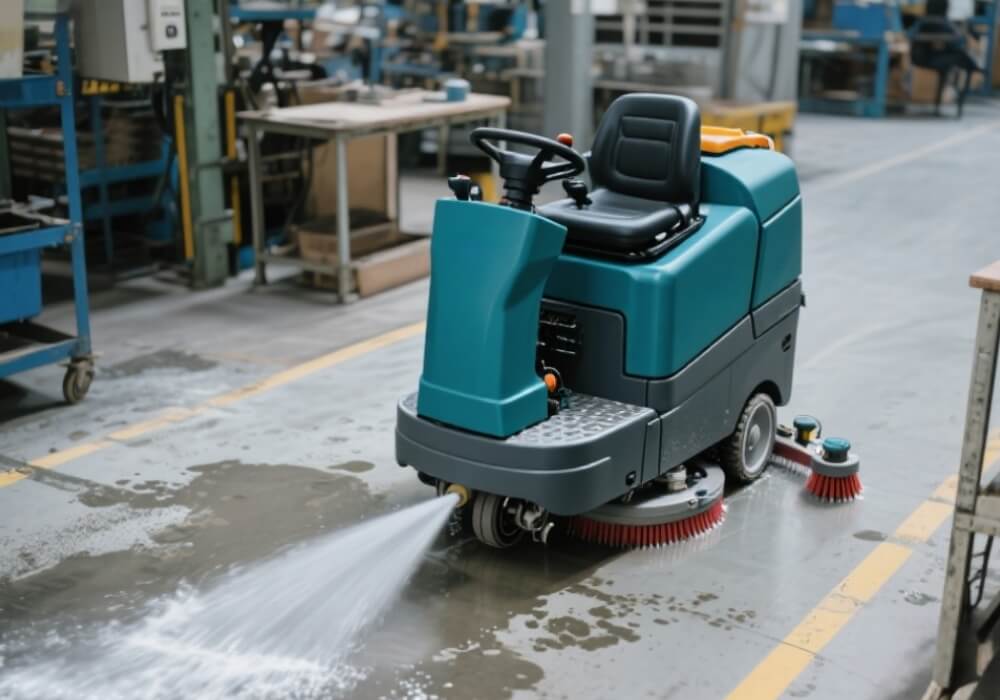
Service Dimension
Floor scrubber battery quality directly affects the user experience and total cost of the machine. When choosing a battery, you can choose a manufacturer with a reliable brand.
Manufacturer Strength Assessment: Technology and R&D capabilities; Product quality certification (CE, UL, RoHS, etc.); Application cases; After-sales service; After-sales repair outlets and technical support.
Service Agreement Content: Warranty Period (3-5 years for lithium batteries, 1-2 years for lead-acid batteries); Regular maintenance services; Arrangement for battery recycling and disposal.
Selection Suggestion: Prioritize choosing large brands and battery manufacturers with good after-sales service.
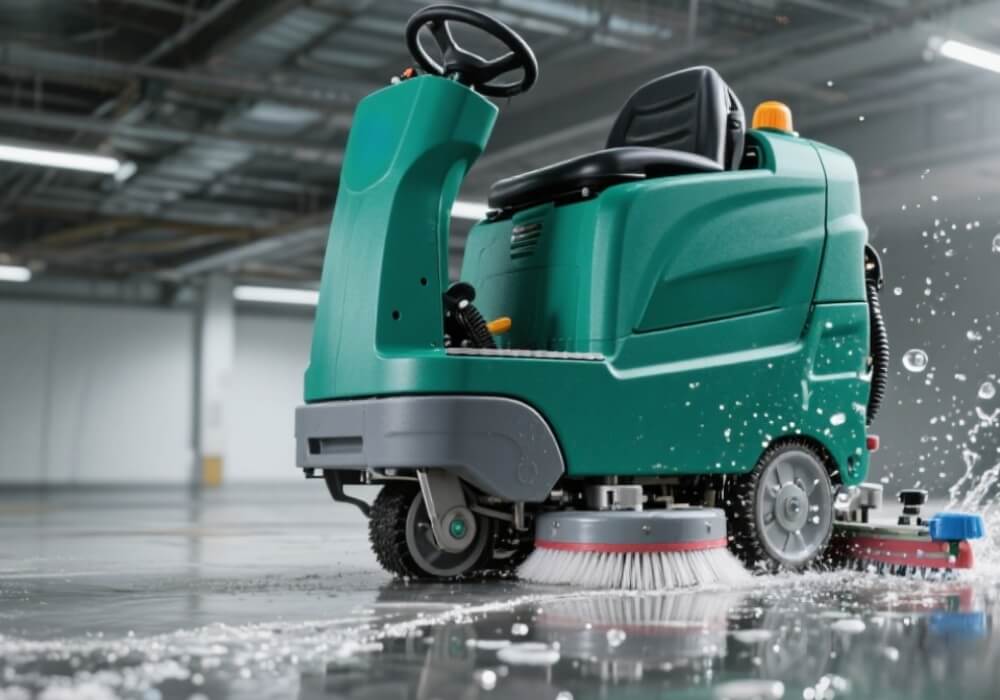
Comprehensive Selection Strategy
Choosing an industrial floor scrubber battery is a decision that requires comprehensive consideration of many factors.
Based on Actual Needs Analysis: Choose the appropriate battery type and specifications based on factors such as work intensity, frequency of use, and environmental conditions
Long-Term Cost Perspective: Not only focus on procurement costs, but also pay attention to long-term use costs and return rates
Safety Principle: All battery choices should be based on the premise of limited safety
Manufacturer Advantage: Choose a manufacturer that can provide long-term technical support and quality service
Durability Management: Establish a good battery management system from procurement, use, maintenance to recycling
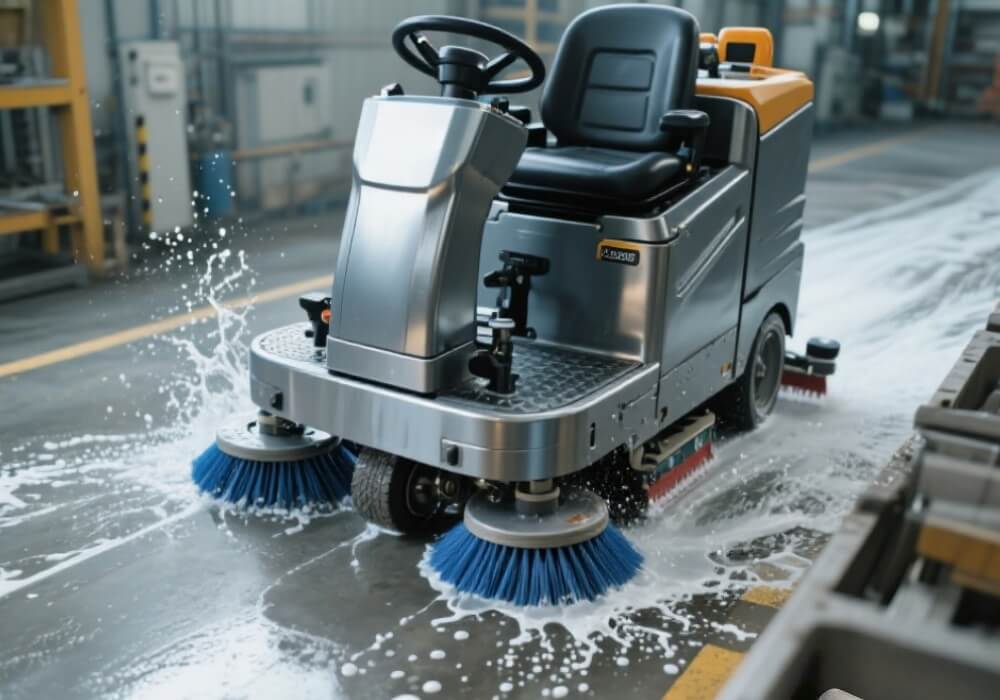
Conclusion
Choosing a floor scrubber battery is a highly technical and comprehensive decision. Companies need to conduct a multi-dimensional analysis to select the most appropriate solution. Correct battery selection not only can reduce operating costs and improve work efficiency, but also enhance safety, reduce environmental impact and provide reliable protection for the company's cleaning operations.

